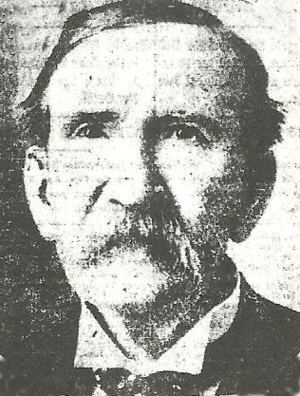Michael C. Murphy (New York politician) facts for kids
Quick facts for kids
Michael Cotter Murphy
|
|
|---|---|
 |
|
| 1st New York City Police Commissioner | |
| In office February 22, 1901 – January 1, 1902 |
|
| Appointed by | Robert A. Van Wyck |
| Succeeded by | John Nelson Partridge |
| Member of the New York State Assembly from the New York County, 1st district |
|
| In office January 1, 1867 – December 31, 1870 |
|
| Preceded by | William Minor |
| Succeeded by | Michael Madigan |
| Member of the New York State Assembly from the New York County, 1st district |
|
| In office January 1, 1881 – December 31, 1883 |
|
| Preceded by | James Fitzgerald |
| Succeeded by | Patrick H. Duffy |
| Member of the New York Senate from the 5th district |
|
| In office January 1, 1884 – December 31, 1889 |
|
| Preceded by | John G. Boyd |
| Succeeded by | William L. Brown |
| Personal details | |
| Born | March 7, 1839 Kilmallock, County Limerick, Ireland |
| Died | March 4, 1903 (aged 63) New York City, New York |
| Awards | |
| Military service | |
| Allegiance | |
| Branch/service | |
| Years of service | 1861 - 1865 |
| Rank | Lieutenant colonel |
| Unit | |
| Battles/wars | American Civil War |
Michael Cotter Murphy (born March 7, 1839 – died March 4, 1903) was an important American politician from New York. He was also a brave soldier who received the Medal of Honor during the American Civil War. Later in his life, he became the very first New York City Police Commissioner.
Contents
Early Life and Military Service
Moving to America
Michael Cotter Murphy was born in Kilmallock, Ireland. When he was about nine years old, his family moved to the United States in 1848. They settled in Manhattan, New York City. Michael went to local schools there. After finishing school, he worked as a compositor, which means he helped arrange type for printing newspapers or books.
Fighting in the Civil War
When the American Civil War began, Michael Murphy joined the army. In May 1861, he became a captain in the 11th New York Infantry regiment, also known as the Fire Zouaves. He served with this group until July 1862. Then, he moved to the 170th New York Volunteer Infantry.
In February 1863, he was promoted to lieutenant colonel of the 170th New York Infantry. He showed great bravery while leading his regiment during a battle called the Battle of North Anna. Because of his actions, he was later given the Medal of Honor, which is the highest award for bravery in the U.S. military. A month after this battle, he had to leave the army because of an injury or illness.
Political Career
Serving in the State Assembly
After his military service, Michael Murphy became involved in politics. He was elected as a member of the New York State Assembly for New York County. He served four terms from 1867 to 1870. The State Assembly is a part of the state government that makes laws.
He was elected to the State Assembly again in 1881 and served until 1883. This shows he was a respected figure in his community.
Becoming a State Senator
Michael Murphy continued his political journey by becoming a member of the New York State Senate. He represented the 5th District from 1884 to 1889. The State Senate is the other part of the state government that works with the Assembly to create laws. Serving in both the Assembly and the Senate meant he had a lot of experience in making laws for New York.
Leading City Departments
On March 3, 1898, the Mayor of New York City, Robert A. van Wyck, appointed Michael Murphy as the Commissioner of Health of the City of New York. In this role, he was in charge of public health for the city. He held this important job for almost three years.
Then, on February 22, 1901, Mayor van Wyck gave him an even bigger responsibility. Michael Murphy was appointed as the very first New York City Police Commissioner. This meant he was the top leader of the police department in New York City. He stayed in this position until January 1, 1902. He resigned when a new mayor, Seth Low, took office.
Later Life and Legacy
Michael Murphy was not in good health during his time as Police Commissioner. He often had to be away from his office because of his illness. He appointed William Stephen Devery as his First Deputy Police Commissioner to help manage the police department when he was absent.
Michael Cotter Murphy passed away on March 4, 1903. He was buried at Kensico Cemetery in Valhalla, New York. He is remembered for his bravery in the Civil War and his long career serving the people of New York in various political roles.
 | John T. Biggers |
 | Thomas Blackshear |
 | Mark Bradford |
 | Beverly Buchanan |

